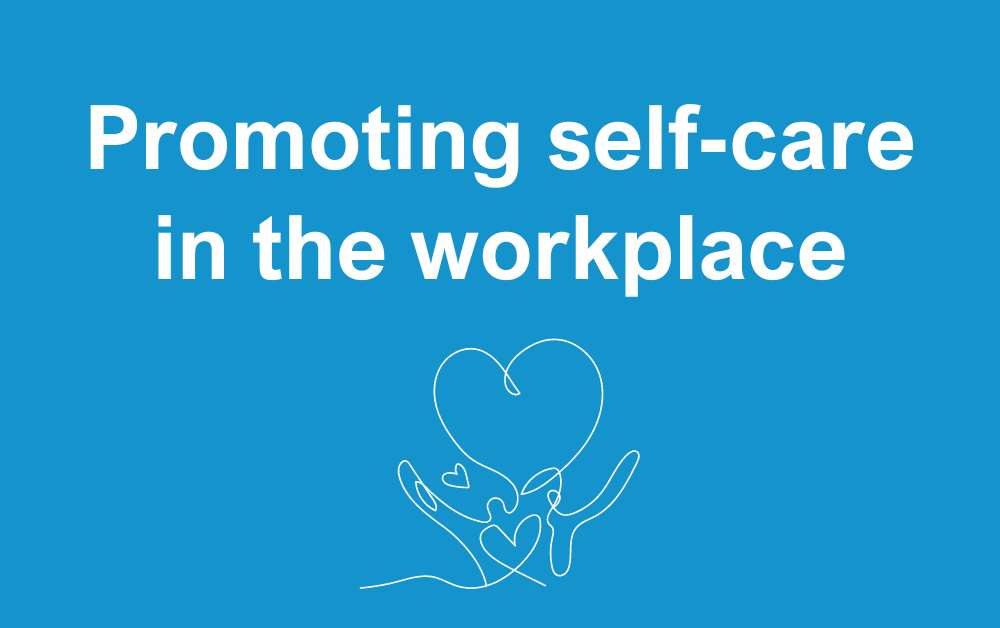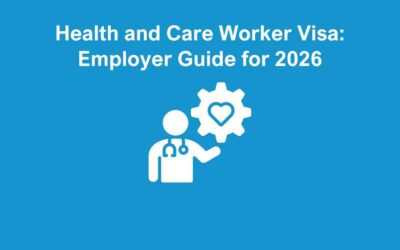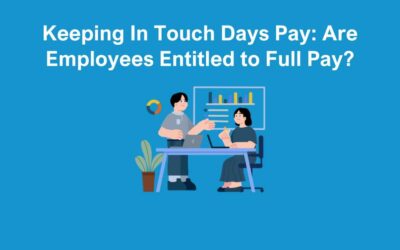Today marks International Self-Care day, highlighting the benefits of a healthy lifestyle, through the form of self-care. How does this, as an employer, relate to you?
The standard workplace shift pattern is 9am to 5pm, which is eight hours long. Work this shift five times a week, that takes you to about 40 hours. The average person will spend 23.8% of their week, in work (just under one quarter!).
Therefore, their feelings towards work will directly impact their general mood & health. As an employer, you have a responsibility to create a healthy & happy workplace. In fact, we would go as far to say that focusing on creating a positive workplace environment is one of the most important aspects of running a business.
This blog will dive deeper into what you can do to support your employees in their journey of self – care.
Occupational Health & how they can support
What is Occupational Health?
Occupational Health is a service that every workplace should consider implementing. It promotes the mental health wellbeing and self-care of your employees.
It helps enable for a happy and healthy workplace environment – and we all want that don’t we! Occupational Health Experts can act as a professional soundboard for your employees, to chat through anything that may be bothering them. This is a service we offer to all of our clients and our employees too of course. You can find more about our Occupational Health Expert, Mags, in our meet the team section here.
We did a podcast episode on this topic, which you can check out below.
The Benefits of Occupational Health
You can prioritise mental health and wellbeing of your employees and reap the rewards of this.
Let’s take a look at what these rewards are:
- Enhanced employee retention as your workforce will respect you and feel valued by you, if you demonstrate that you care about their wellbeing and self-care.
- You may see a happy workforce, as employees will feel more settled in the workplace. Crucially, they will also feel more comfortable speaking up about any issues you have. Especially if you know there is a professional you can speak to on such matters.
- Lastly, we can focus on this from an employer point of view. If you encounter any problems surrounding the wellbeing of your employees, then you can speak with your occupational health expert and refer the employee in question to the occupational health expert or decide a plan of action to best support your employees.
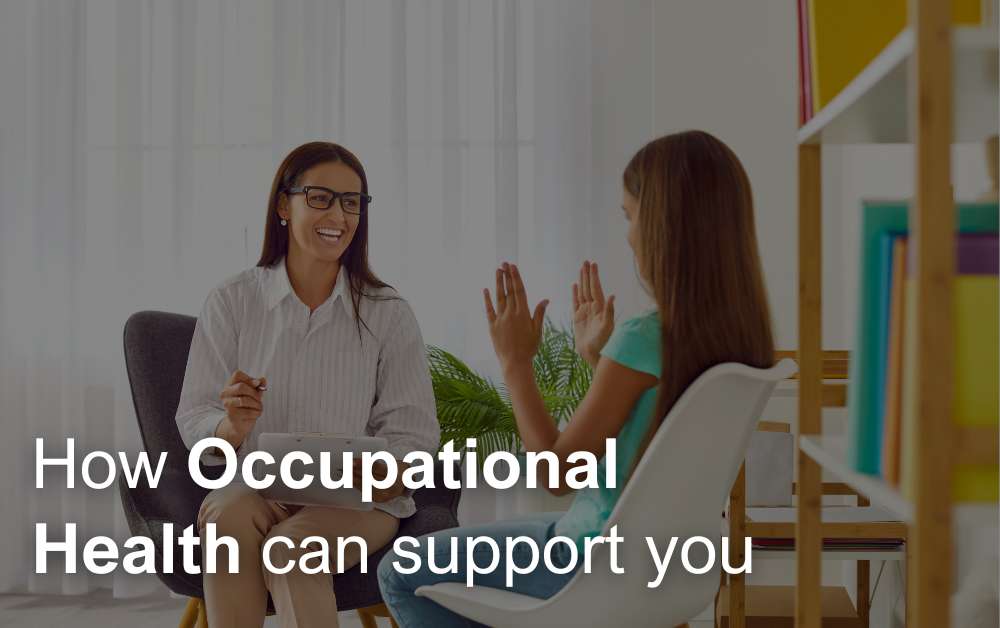
Self-Care
What is Self-Care?
Prioritising your self-care involves taking a proactive approach to improving and maintaining a high level of physical, mental and emotional wellbeing. Best practice within this is to have a healthy diet, exercise on a regular basis, having a sustainable sleeping pattern (you can only function off coffee for so long!). In addition, you can also have an understanding of when to seek help and how to seek help, if necessary. It is important to recognise that there is nothing wrong in seeking help. In fact, it should be commended and demonstrates a level of bravery and self-awareness that you can be proud of. Self-care is a vital part of your day-to-day life, productivity and quality of life that you live. It is important to remember that you are in control of your level of self-care, you can change the quality of your life for the better. Furthermore, your employer is there to support you through this. You will likely spend a large part of your week completing work or thinking about work, and they are there to support you through the tough times as well as celebrating the good times.

The four dimensions of self-care
What are your responsibilities as an employer here?
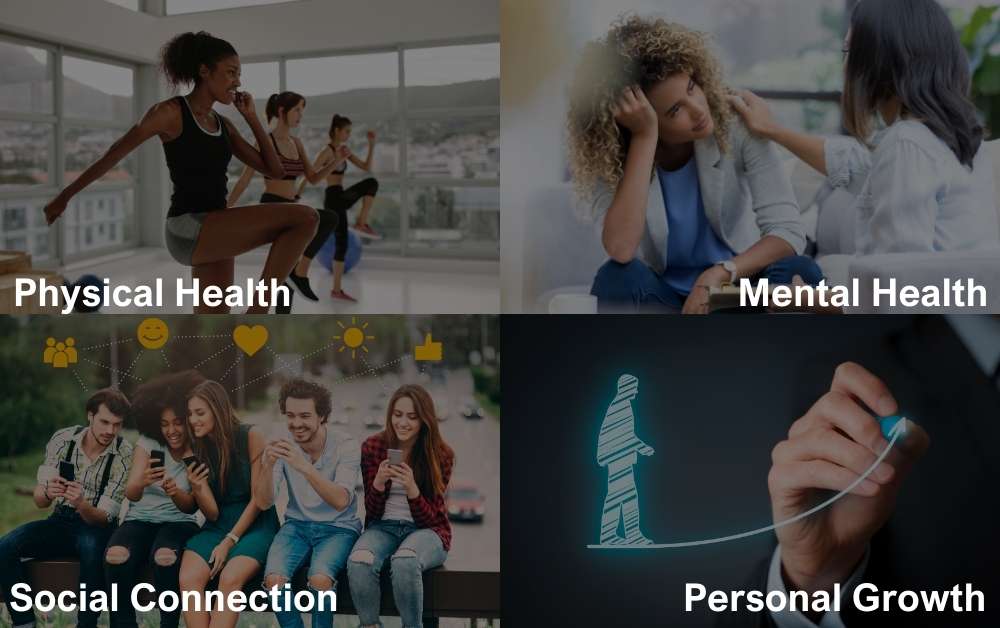
Physical Health
You can support your employees by encouraging them to exercise as and when possible. One activity that we have implemented in our own office is monthly walk & talk sessions. This involves going out for a walk, with all the team present, in and around the area where our office is based. As you will know, we are based in Scotland, therefore (this goes without saying!), these walk & talk sessions are fully weather dependant. As important as exercise is, it is not enjoyable being sat in wringing wet clothes for the rest of the day. Anyway, long story short, walk & talks are a great way to get out and about as a team and getting to know one another, away from the pressures of work.
Mental Health
As an employer, you can demonstrate your commitment to maximising self-care amongst your workforce by operating an open-door policy. This level of transparency can create an openness within your workplace, and ensure employees are comfortable within the workplace. If an employee comes to you with an issue regarding their mental health, ensure they feel heard, listened to and valued.
Social Connection
Positive relationships within the workplace are integral to the success of your company. As an employer, you can encourage team building sessions. This promotes teamwork, allows team members to get to know one another better and, in the long run, facilitates for a higher standard of work. We have another blog on a similar topic to this – The Importance of Team Building – which you can view here.
Personal Growth
By focusing on the personal growth of your employees, you can implement a selling point to potential new employees or potential new clients. Here at The HR Booth, we have several members of the team who complete college courses or apprenticeships, all of which is built into their work schedule, to further develop their personal development.
You can check out a video we did with our Digital Marketing Assistant, Rennie, on the benefits of apprenticeships.
How does this benefit my work?
Self-care and organisational success goes hand-in-hand with each other.
Reduced Absence
The first key benefit is a simple one. If your employees are generally healthy, then you are less likely to see employees off work sick. This means they will be present in work, providing a high standard of work, engaging on a regular basis and generally delivering a high standard of work.
Rise in Productivity
Again, this one is pretty self-explanatory. Employees who are healthy and engaged, will, more often than not, be more productive and deliver a high standard of work. This is especially important if you are delivering work for clients, like we do on a daily basis. Your clients wants and needs are the most important thing, and employees who are productive will be most responsive to those needs.
Happier Workplace
Everyone wants to be happy in the workplace, and this is one way to make sure that your workforce will be happy & more likely to create positive relationships with one another. Employees will be more likely to help one another with problems. This means that teamwork will rise and, as they say, teamwork makes the dreamwork!
We caught up with Alistair to chat about how he has helped implement a positive workplace culture here at The HR Booth, you can view this here.

How do we implement this?
This all sounds great, but how do you, as an employer, implement this in the workplace? Let’s take a look.
Regular Check-Ins
You should seek to hold regular meetings with your employees. These can be done in the form of an appraisal or an informal conversation – whatever suits your own needs. Regardless of what you call them, it is important they are done on a regular basis and is a two way conversation between line manager and employee. These check-ins provide the employee an opportunity to voice their opinions on matters surrounding their job and the company as a whole. Ensure that your employees feel valued & respected during this conversation. In addition, it is important that you consider acting upon some of the employees’ suggestions, if applicable.
Support Personal Development
At The HR Booth, we hold regular internal training sessions on various subjects. This enhances our employees’ knowledge, and it has been extremely positive to see the team take ownership of this, organising training themselves. We also offer management training workshops to our clients, something which has proven to be very popular. This may be something you feel your workplace would benefit from, especially with the potential impending changes implemented by the new Labour Government. If this would be of interest to you, then feel free to get in contact with us via the contact us form at the bottom of this page, and we’ll be glad to help you out.
Offer Flexible Working
Flexible working is (and should be) commonplace within the majority of workplaces (when suitable) in the modern day. It is something we are very passionate about at The HR Booth, and we regularly try to encourage our clients to do the same. As we touched this may not be possible if your company operates in a specific industry. However, if it is possible, consider offering it to all employees.
The benefits are of this are endless, too many to mention in the one article! Therefore, we’ve linked in a recent podcast episode below for you to view.
We hope you’ve gained some insight from this article. Employee self-care is at the top of our priority list and it should be at the top of yours too.
If you have any questions or need assistance on this subject (or any HR subject) then please get in touch with us via the contact form below.

